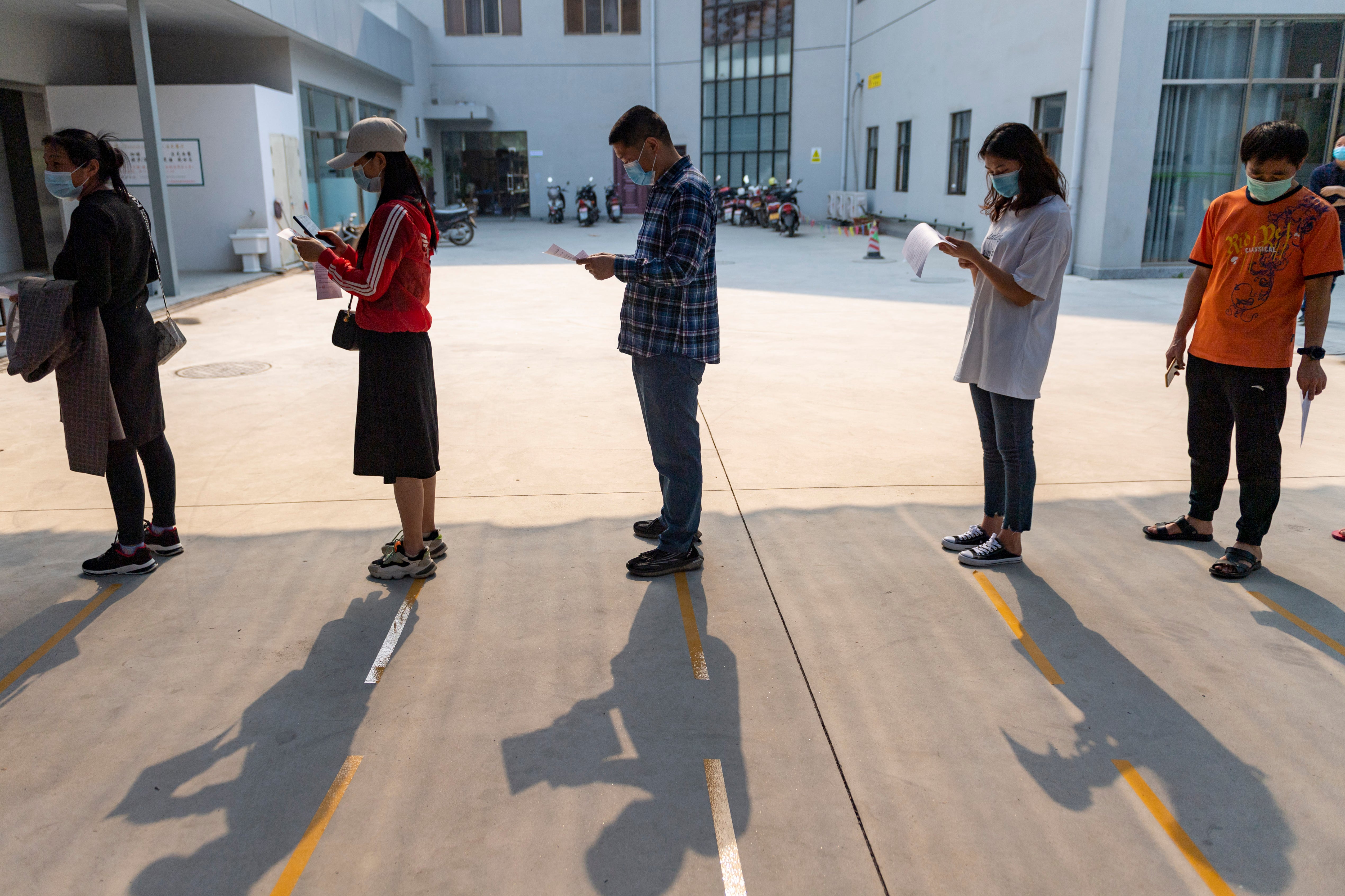Asia Today: Philippines extends lockdown as infections spike
The Philippine government has extended a lockdown by another week after an alarming spike in coronavirus infections continued to surge and started to overwhelm many hospitals in the capital and outlying regions

Your support helps us to tell the story
From reproductive rights to climate change to Big Tech, The Independent is on the ground when the story is developing. Whether it's investigating the financials of Elon Musk's pro-Trump PAC or producing our latest documentary, 'The A Word', which shines a light on the American women fighting for reproductive rights, we know how important it is to parse out the facts from the messaging.
At such a critical moment in US history, we need reporters on the ground. Your donation allows us to keep sending journalists to speak to both sides of the story.
The Independent is trusted by Americans across the entire political spectrum. And unlike many other quality news outlets, we choose not to lock Americans out of our reporting and analysis with paywalls. We believe quality journalism should be available to everyone, paid for by those who can afford it.
Your support makes all the difference.The Philippine government extended a lockdown by another week Monday after an alarming spike in coronavirus infections continued to surge and started to overwhelm many hospitals in the capital and outlying regions.
President Rodrigo Duterte placed Metropolitan Manila and four outlying provinces, a region of more than 25 million people, under lockdown last week as daily infections breached 10,000. Roman Catholic leaders shifted Holy Week and Easter events online after all public gatherings, including in places of worship, were temporarily banned.
The government-run Lung Center of the Philippines became the latest hospital in the capital region to announce over the weekend that it can no longer accept walk-in patients after its COVID-19 ward reached full capacity and its emergency room was handling twice its capacity.
“We are not just full. We are very full. In fact, the hospital has been full for the past two weeks,” Lung Center spokesman Dr. Norberto Francisco said.
Other hospitals said they could expand bed capacity but lacked enough medical workers partly because many had been infected.
Duterte’s administration has increasingly faced criticisms of mishandling the pandemic, but presidential spokesman Harry Roque said the spread of more infectious coronavirus variants came as a surprise.
“No one could have probably foreseen how infectious these new variants are and as a result of which we have these ballooning numbers,” Roque told ABS CBN News, adding officials would inaugurate a 110-bed intensive-care unit in a hospital in the capital region Monday and were planning to launch mobile COVID-19 intensive-care centers.
The Philippines has reported more than 795,000 COVID-19 cases with 13,425 deaths, the highest totals in Southeast Asia after Indonesia.
Elsewhere in the Asia-Pacific region:
— Citywide testing in a Chinese border city near Myanmar has uncovered 20 more cases of coronavirus infection, the National Health Commission reported Monday, raising the total in the outbreak past 100. Ruili is working to vaccinate all its 300,000 residents to try to get under control an outbreak that is something of an anomaly in a country that has all-but eliminated local transmission. Five of the newly reported cases were in people who showed no symptoms, bringing the city's totals to 51 cases of COVID-19 and 56 cases of infection without symptoms. Those categories are counted separately in China, which treats COVID-19 patients in hospitals and places infected people without symptoms in isolation. Some of those infected are Myanmar nationals and authorities have offered free vaccinations to foreigners living and working in the city. Residents have been order to quarantine at home and non-essential businesses have been closed. Security measures have also been tightened along the porous border to prevent illegal crossings. China got off to a slow start in vaccinating its population of 1.4 billion people, despite having four approved vaccines, but has now rolled out a nationwide vaccination drive in an effort to build herd immunity.